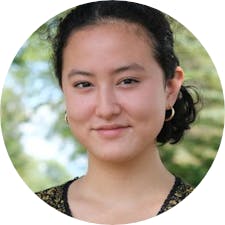Faculty members have reestablished the campus chapter of the American Association of University Professors (AAUP) to expand their influence in the college’s decision-making. The chapter has been reactivated in the past, including during the 2008 financial crisis and following Charles Murray’s 2017 visit to campus. In its two weeks of existence, the revived chapter has held Zoom meetings, elected leaders, formed subcommittees and amassed a 60-person email list.
The AAUP is a national organization with campus branches at colleges and universities across the country. The group promotes academic freedom and shared governance between faculty and administrators.
Laurie Essig, director and professor of gender, sexuality and feminist studies, was elected president of the campus chapter. She said the AAUP can help with three things: protecting faculty governance, protecting academic freedom and aiding salary negotiations. Concerns about the future of employee compensation helped spur the revival of the campus AAUP chapter. With the school exploring ways to reduce the financial toll of the pandemic, Essig said employee compensation packages may suffer.
“Even before the pandemic happened, there were certain austerity measures that were confusing to many faculty,” Essig explained. But once the pandemic began to unfold, Essig noted that the focus of budgetary cuts were employee compensation packages instead of selling certain pieces of property or ceasing to develop new properties.
Essig clarified that these are not official policy proposals, but scenarios put forth by senior administrators. As of last week, some of the scenarios included cuts to retirement contributions and salaries.
One possible scenario suggests an up to 15% percent cut from salaries and retiree benefits. Even if the school does not reduce employee salaries, Essig states that a cut to benefits is especially concerning to her because employees are encouraged to consider their total compensation packages — which include benefits like retirement plans — alongside salary when accepting their positions.
The school’s financial plan has been a major point of discussion for campus AAUP members. Last week, the chapter released a document entitled “A Financial Future for All of Us” that was sent to President Laurie Patton, the trustees and members of the Senior Leadership Group. The statement urges the administration to increase the usual 5% annual draw on the endowment to 7% to avoid scenarios in which employees are fired or compensation is decreased.
The statement details the potential impact of a reduction in employee compensation. “Less money will translate to lower productivity because, necessarily, faculty will find alternative ways to generate income, such as freelance work, to pay their rent, mortgages, and support their families,” it reads. The statement notes the possible disadvantages to students if faculty are forced to split their time and focus in this way.
The statement also proposes a collective bargaining approach, suggesting the formation of a committee to advocate for faculty and staff in the ongoing discussions regarding employee compensation and college finances.
The chapter is also working to involve staff and has established a subcommittee for outreach. According to the national AAUP constitution, non-faculty are able to join the organization as associates. There is, however, no information on AAUP’s website regarding staff members.
Members have spread the word about the chapter through virtual faculty meetings and an all-faculty email, but Essig said it has been more challenging to get in touch with staff remotely. Noting a recent, unsuccessful unionization attempt, Essig said she hopes staff are eventually able to unionize.
“I think the AAUP is a stopgap measure for staff, but we are certainly willing and hopeful to bring them into the process and allow them to express their concerns," she said, noting that the AAUP chapter can represent both staff and faculty concerns.
Middlebury’s AAUP chapter is not a union. Essig said the organization may function similarly in some ways, given its focus and training on collective bargaining.
The AAUP website lists an assortment of resources and benefits available to its members, including insurance plans and various channels for expert advice and training. However, Jamie McCallum, sociology professor and vice president of the campus AAUP chapter, said Middlebury faculty are not interested in the AAUP for its member benefits.
“I think the important thing to realize from our standpoint is that the AAUP is not really a service organization. It's not like, what do you get. It's what can you do with it,” he said. “So, we see the AAUP as a platform from which to launch, or from which to start an organization that has greater faculty voice and greater faculty input into important decisions that the college makes.”
Essig said AAUP meetings thus far have involved a lot of information sharing and brainstorming. The chapter is still working to establish a collective bargaining process, the focus of one of its subcommittees, especially considering concerns about compensation cuts and the long-lasting effects of such decisions.
“What Middlebury does now with regards to faculty compensation will impact it for more than a decade in the future,” said McCallum. “It is very important that faculty and staff have a voice in that process.”

Abigail Chang ’23 (she/her) is the Editor in Chief.
She previously served as a managing editor, Senior News Editor, News Editor and co-host of The Campus' weekly news radio show.
Chang is majoring in English and minoring in linguistics. She is a member of the Media Portrayals of Minorities Project, a Middlebury lab that uses computer-assisted and human coding techniques to analyze bulk newspaper data.
Throughout last year, Chang worked on source diversity and content audits for different media properties as an intern for Impact Architects LLC. Chang spent summer 2021 in Vermont, working as a general assignment reporter for statewide digital newspaper VTDigger. Chang is also a member of the Middlebury Paradiddles, an a cappella group.




